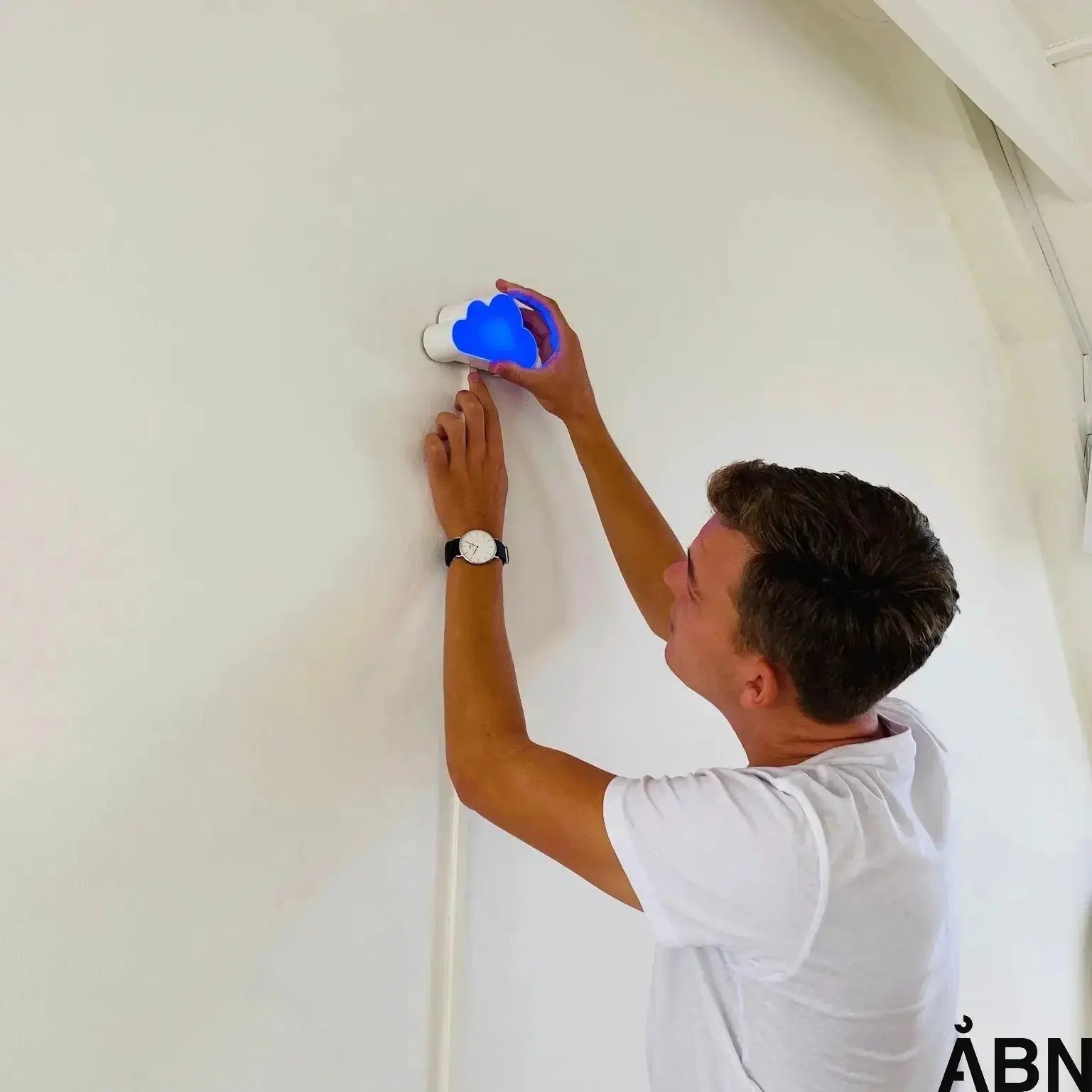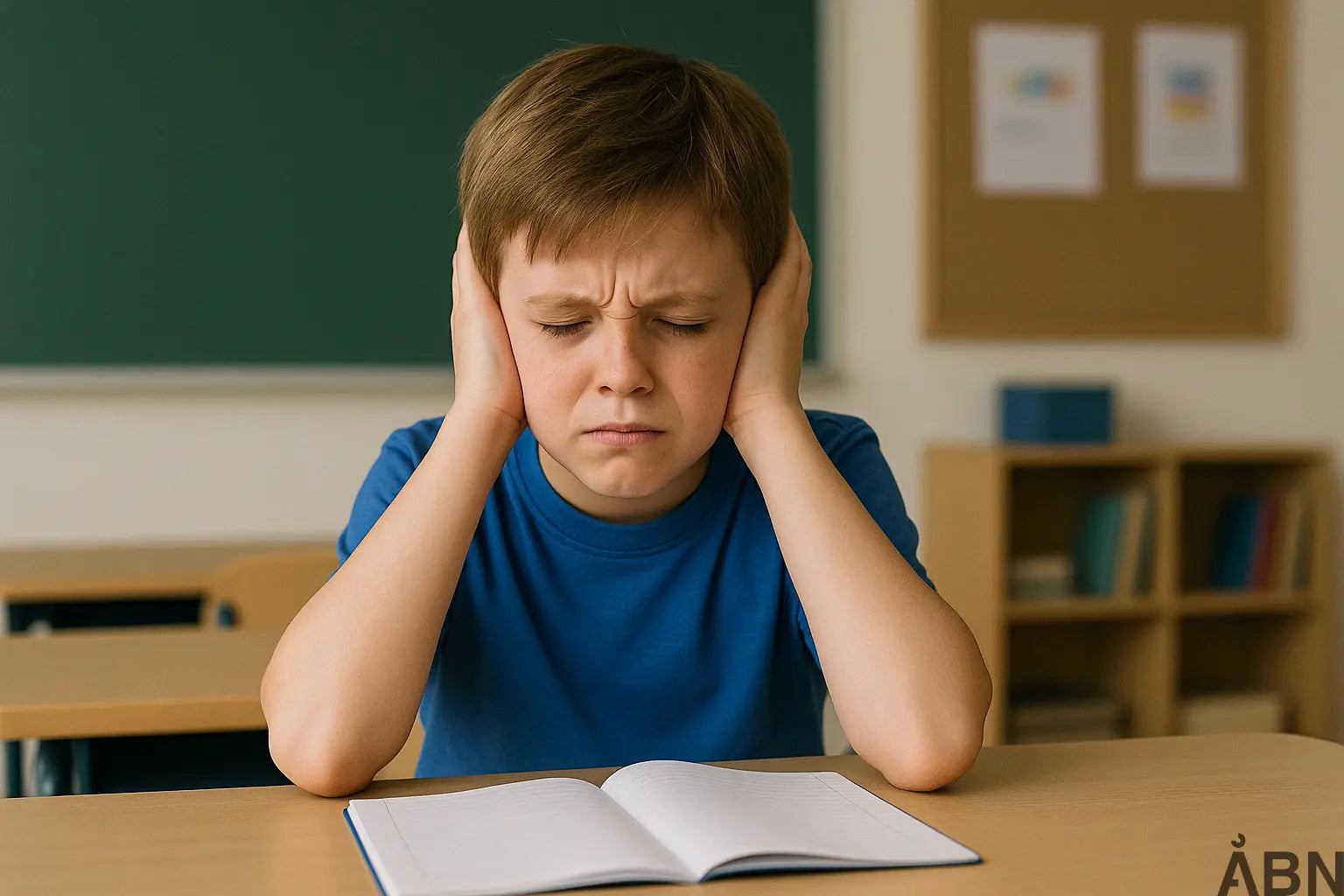Can noise cause stress?
Can noise cause stress? The short answer is: Yes – noise can significantly affect both our mental and physical health. In Denmark, we are surrounded by sounds and noise every single day: traffic noise, humming ventilation, colleagues talking, loud music, and the neighbor's drill on Sunday morning. These sounds may seem harmless on their own, but when they accumulate or occur in certain situations, they can be the invisible trigger that pushes us closer to the stress limit.
At ÅBN, we work with technology that makes indoor climate – including noise – visible and actionable. Because noise is not just a nuisance. It is a potent stress factor that both professionals and parents should take seriously. In this article, we delve into what the research says, how noise affects our bodies and minds, and what we can practically do to reduce its negative consequences.
What is noise – and why do we react so strongly to it?
Noise is defined as unwanted sound. It can be anything from traffic, machinery, air conditioning, and human activities. But why do we react so violently to something that is essentially "just" sound?
Our nervous system is designed to detect danger – and sound has historically been one of the most important signals that something is wrong. Therefore, our body will automatically react to loud or persistent sounds by increasing our heart rate, releasing stress hormones and activating our fight-or-flight response.
Can noise cause stress? According to a study by the Danish Institute of Public Health and the Danish Building Research Institute , the answer is yes . They found that both traffic noise and neighbor noise can increase the risk of stress and poor mental health. It's not just about decibels – but about frequency, duration and context.
When noise enters the office or classroom
In many modern buildings, visual design is prioritized over acoustics. Large, open office spaces and minimalist classrooms without sound-absorbing materials create spaces where noise is allowed to roam freely. Here, noise becomes not just background noise – but an active disruption to concentration and well-being.
Can noise cause stress? According to WHO and the Danish Road Directorate's recommendations , yes, especially when the noise exceeds certain levels . This applies to both traffic and indoor noise - and particularly affects sleep, learning and general quality of life.
At ÅBN, we have met many public and private actors who struggle with exactly this. Teachers who lose energy in noisy classrooms. Office workers who cannot focus. And children who become overstimulated and restless in daycare institutions. That is why we have developed visual solutions like the Skyen , which makes noise and other indoor climate factors visible – and helps users to improve their behavior and well-being.
Noise as the invisible stress trigger
Imagine having an invisible guest with you all day long – someone who constantly taps you on the shoulder, whispers, shouts or makes noise. The invisible guest is noise. And it slowly wears down your mental battery.
Can noise cause stress? Yes. And not only that – it can also worsen existing mental challenges such as anxiety and depression. According to Danish research results, there is a clear connection between noise exposure and poor mental health. The combination of constant sensory overload and lack of control over one's environment creates a feeling of powerlessness – a well-known component in the development of stress.
Thought Patterns and Noise: When the Mind Amplifies Sounds
Stress is not just about the environment – it is also about how we think and react. According to Lederweb's research , our thought patterns are crucial to whether we develop stress. If we interpret noise as an irritation that we cannot get rid of, frustration grows – and thus the stress response.
Can noise cause stress? Yes, and especially when we feel powerless against it. Therefore, stress prevention is also about strengthening our mental resilience and creating a sense of agency – something that ÅBN's solutions support by making the invisible visible and actionable.
Noise in the home: When children and parents feel the effect
For many parents, the home is a sanctuary – but also a potential source of noise. Children's play, television, kitchen appliances and traffic outside the window can all combine to create a constant soundscape. This affects not only the adults – but also the children's development and well-being.
Can noise cause stress? For children in particular, yes. Children are more sensitive to sensory input and have a harder time filtering out unwanted sound. Over time, constant noise exposure can affect their ability to concentrate, sleep, and regulate emotions. That's why it's important to create sound environments where both children and adults can breathe freely.
The sustainable path to a healthier sound environment
At ÅBN, we believe that good sound is not just a matter of comfort – but of health and sustainability. When we create environments with lower noise, we make room for peace, reflection and human contact. It is not only good for the individual – but also for the community.
By using data-driven solutions like INSIDE , schools, offices and institutions can map noise levels and other indoor climate factors in real time – and act on them. This not only creates better well-being, but also better decision-making for facility managers and decision-makers.
Practical advice: How to reduce noise and strengthen your calm
Although we can't control all the noises around us, there is luckily a lot we can do ourselves. Here are some simple but effective tips:
- Use noise-absorbing materials (curtains, carpets, acoustic panels) in homes and institutions.
- Establish “quiet hours” in the office or classroom. This gives the brain a break.
- Use earplugs or noise-cancelling headphones if necessary.
- Create awareness of noise – visualize it, for example with technology from ÅBN.
- Work on your own thought patterns: Is the noise temporary and can you change your reaction to it?
Can noise cause stress? Yes – but knowledge, technology and community can help us take back control of our sound environment.
FAQ
How does noise affect the body physically?
Noise activates the body's stress system, which can lead to increased blood pressure, altered heart rhythm and disrupted sleep. Long-term noise exposure can contribute to the development of stress-related diseases.









